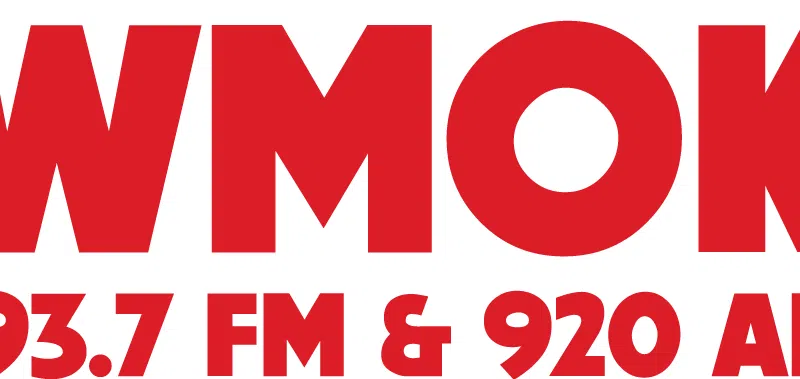CHICAGO – The Illinois Department of Public Health (IDPH) announced today that the CDC is reporting 6 counties in the state are at a Medium Community Level for COVID-19 this week,
compared to 14 a week ago. There are no counties at High Level for the fourth straight week. IDPH has recorded a total of 4,122,046 cases and 36,687 deaths, in 102 counties in Illinois since
the beginning of the pandemic. The department is reporting 5,584 new confirmed and probable cases of COVID-19 in Illinois in the week ending April 2, and 16 deaths.
“It is great to see COVID-19 community levels remaining low as we enjoy some warmer springtime weather,” said IDPH Director Dr. Sameer Vohra. “While President Joe Biden signed a measure to end the national emergency this week, IDPH remains focused on reducing the spread of COVID-19 across Illinois. With the public health emergency and statewide disaster declaration remaining in place until May 11, IDPH is actively working with our local and federal partners to transition our operations and programs for the new normal.”
IDPH continues to urge the public to seek treatment quickly if they test positive for COVID-19. Treatment is widely available and IDPH announced recently that SIU Medicine has made it easier to obtain care by offering a new telehealth test to treat service for COVID-19, in partnership with the department. The service is aimed at providing faster and easier access to treatment for Illinoisans who contract COVID-19. Those who test positive are encouraged to call 217-545-5100 from 7 a.m. to 8 p.m. Monday through Friday and 10 a.m. to 5 p.m. on Saturdays and Sundays to schedule a telehealth appointment to determine if medical treatment is recommended. Appointments will be offered on a first-come, first-serve basis.
Additional options for obtaining tests and treatments can be found at the following test to treat site or by contacting your provider for treatment options, within 5 days of feeling ill. IDPH is helping Illinoisans stay prepared for any future surge of COVID-19 cases by offering 1 million free COVID-19 rapid antigen tests to Illinois residents in all zip codes outside the City of Chicago through a partnership with the Rockefeller Foundation’s public charity, RF Catalytic Capital and its Project ACT (Access COVID Tests) program.
Through Project ACT, IDPH is distributing up to one million at-home antigen tests to 200,000 Illinois households. You can request one package of five tests on a first-come-first-serve basis at the Project ACT website. The tests will be delivered to the home address.
Free or low cost COVID-19 testing locations are also available throughout the state, including in Chicago, and can be found on the IDPH website’s testing locator page.
The CDC authorized two new bivalent booster vaccines on September 1 that include an mRNA component of the original strain to provide an immune response that is broadly protective against
COVID-19 and an added mRNA component in common between the omicron variant BA.4 and BA.5 lineages to provide better protection against COVID-19 caused by the omicron variant. Initially, the Moderna COVID-19 Vaccine, Bivalent, was authorized for use as a single booster dose in individuals 18 years of age and older and the Pfizer-BioNTech COVID-19 Vaccine, Bivalent, was authorized for use as a single booster dose in individuals 12 years of age and older. On October 12, the CDC authorized the updated COVID-19 vaccines from Pfizer-BioNTech for children ages 5 through 11 years, and from Moderna for children and adolescents ages 6 through 17 years.
On December 9, the CDC expanded its authorization for bivalent boosters to include children aged 6 months to 5 years. Children ages 6 months through 5 years who previously completed a Moderna primary series can now receive a Moderna bivalent booster 2 months after their final primary series dose. Children ages 6 months through 4 years who are completing a Pfizer primary series will receive a Pfizer bivalent vaccine as their third primary dose.
On March 14, the FDA expanded its authorization for bivalent boosters to include children aged 6 months to 4 years who had previously completed their entire Pfizer primary series with the monovalent vaccine. These children will now to be able to receive the Pfizer bivalent vaccine as their booster, at least 2 months after completion of the primary series with the monovalent vaccine. The children in this age group who completed their Pfizer primary series with the bivalent booster as their 3rd dose (after December 2022) are not eligible for a booster dose of a bivalent vaccine at this time.
The updated boosters are available at pharmacies, hospitals, and other healthcare providers. The best way to locate a vaccine provider near you is to visit www.vaccines.gov and search for bivalent booster availability.
As of last night, 568 individuals in Illinois were reported to be in the hospital with COVID19. Of those, 61 patients were in the ICU and 21 patients with COVID-19 were on ventilators.
The preliminary seven-day statewide case rate is 45 COVID-19 cases per 100,000 Illinoisans.
In counties at the Medium Community Level, persons who are elderly or immunocompromised (at risk of severe outcomes) are advised to wear a mask in indoor public places. They should also get up to date on COVID-19 vaccines or get their bivalent booster, if eligible.
IDPH has been supporting pharmacies and healthcare providers in efforts to increase their inventories of the various FDA-authorized treatments. There are over 1,200 treatment locations in Illinois – including all the major retail pharmacies. More than 96.7% of the state’s population is within a 10-mile radius of one of these locations.










Comments